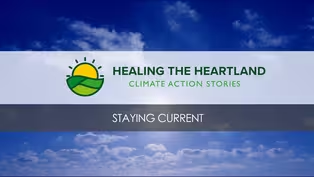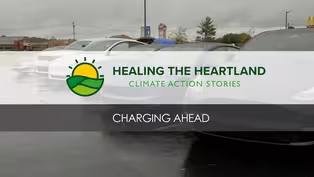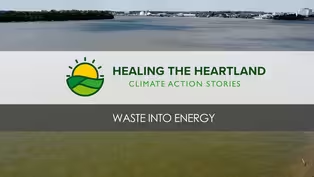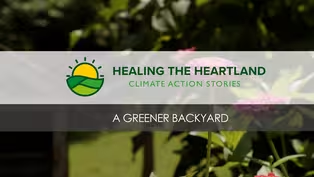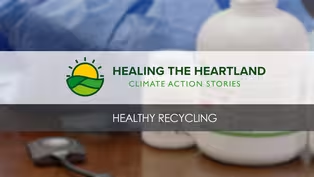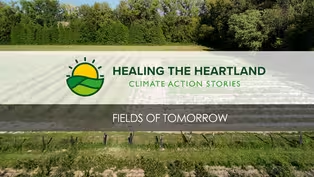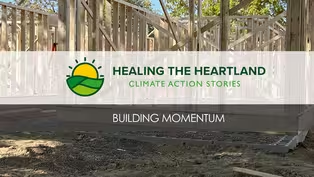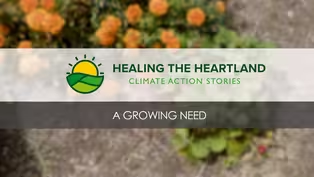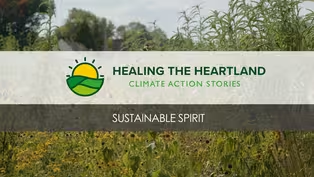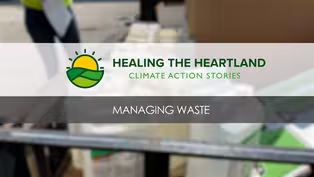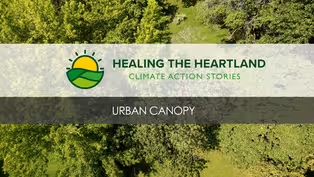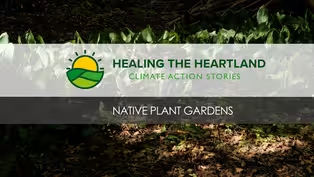Healing the Heartland: Climate Action Stories
A Growing Need
Clip | 3m 20sVideo has Closed Captions
How choosing local food and reducing food waste can help with climate change.
How choosing local food and reducing food waste can help with climate change.
Problems playing video? | Closed Captioning Feedback
Problems playing video? | Closed Captioning Feedback
Healing the Heartland: Climate Action Stories is a local public television program presented by WNIN PBS
Healing the Heartland: Climate Action Stories
A Growing Need
Clip | 3m 20sVideo has Closed Captions
How choosing local food and reducing food waste can help with climate change.
Problems playing video? | Closed Captioning Feedback
How to Watch Healing the Heartland: Climate Action Stories
Healing the Heartland: Climate Action Stories is available to stream on pbs.org and the free PBS App, available on iPhone, Apple TV, Android TV, Android smartphones, Amazon Fire TV, Amazon Fire Tablet, Roku, Samsung Smart TV, and Vizio.
One really great choice people can make is to work in community gardens and to grow their own foods, because that takes a whole different element of releasing carbon out of the atmosphere, right?
If you're growing your own food, you're not transporting that food in from a different area.
And all of that fuel cost isn't happening.
It's usually thought that between 5 and 10 times more energy is invested in transporting.
Then, then you get from the food itself, right?
So, so growing locally, and if you're not growing your own, at least buying at the farmer's market is a way of reducing that carbon footprint of the food.
So we do have two community gardens.
the one that I mentioned, as far as the on the side of our building, we have four raised beds.
that produces a lot of a lot of food, a lot of great things as far as tomatoes, cucumbers.
And, it's for our neighborhood.
But it's been very successful, you know, to see people in our neighborhood take care of it.
to water the plants, to make sure, you know, the trash around it is cleaned up.
Young And Established a local nonprofit.
we do a lot of different things as far as mentoring, tutoring.
Of course, we have a center that we do a lot of different things as well.
As far as our resources that we provide.
During Covid, me personally, I was delivering meals every single day, and I noticed that there were a lot of food deserts in our community, and I didn't know that at the time.
You know, I knew there were issues, but I didn't realize it until I started to do that.
And after Covid, we said, there's there's still a huge need.
There's a lot of people that don't have access, whether it's transportation or, you know, just to be able to go to a grocery store up the street from you.
Or just a few miles.
There's a lot of food deserts in our community.
This being one of them.
December, I ended up reaching out to Walmart.
I knew that they had a lot of opportunities, you know, to basically serve our community, give us the food and, let us, you know, give it out to the people in the community.
a lot of that food was being thrown away.
fresh produce.
a lot of things that could be used.
that was just one of the things that we wanted to stop food waste.
And now a partnership was formed from that.
And since December, every Wednesday, we have a ton of people come.
where we're able to serve them.
the food, not only that we get from Walmart, but, from our gardens, we have partnership with local farmers, but then also other, you know, restaurants and businesses have now, joined in on this.
So it's just been amazing to see, you know, being able So it's just been amazing to see, you know, being able to serve and it's growing, which just shows the need and we just want to be able to, you know, make sure we're continuing to do this and, bring along as many people as we can to help with this situation.
Clip | 3m 44s | Solar systems can be energy and cost efficient for residential and commercial buildings. (3m 44s)
Clip | 4m 19s | Both personal and mass transit electric vehicles greatly reduce greenhouse gas emissions. (4m 19s)
Video has Closed Captions
Clip | 3m 8s | Mesker Park Zoo and the Evansville Water Sewer Utility describe how they turn waste into energy. (3m 8s)
Video has Closed Captions
Clip | 3m 59s | Using native plants to have a lower impact on the environment. (3m 59s)
Video has Closed Captions
Clip | 3m 7s | A partnership between Berry Plastics and Deaconess Health helps reduce medical waste. (3m 7s)
Video has Closed Captions
Clip | 4m 35s | Sustainable farming practices and innovations. (4m 35s)
Video has Closed Captions
Clip | 3m 8s | Affordable, energy efficient housing program and affordable, restorative housing program. (3m 8s)
Video has Closed Captions
Clip | 3m 20s | How choosing local food and reducing food waste can help with climate change. (3m 20s)
Video has Closed Captions
Clip | 3m 31s | Local faith groups talk about the importance of environmental stewardship. (3m 31s)
Video has Closed Captions
Clip | 3m 10s | Dubois County Ag Day featuring plastic, tire, and pesticide container recycling programs. (3m 10s)
Video has Closed Captions
Clip | 4m 29s | Learn about the importance of an urban canopy. (4m 29s)
Video has Closed Captions
Clip | 4m 22s | Native plants combat climate change. (4m 22s)
Providing Support for PBS.org
Learn Moreabout PBS online sponsorship
- Science and Nature

Explore scientific discoveries on television's most acclaimed science documentary series.

- Science and Nature

Capturing the splendor of the natural world, from the African plains to the Antarctic ice.












Support for PBS provided by:
Healing the Heartland: Climate Action Stories is a local public television program presented by WNIN PBS
